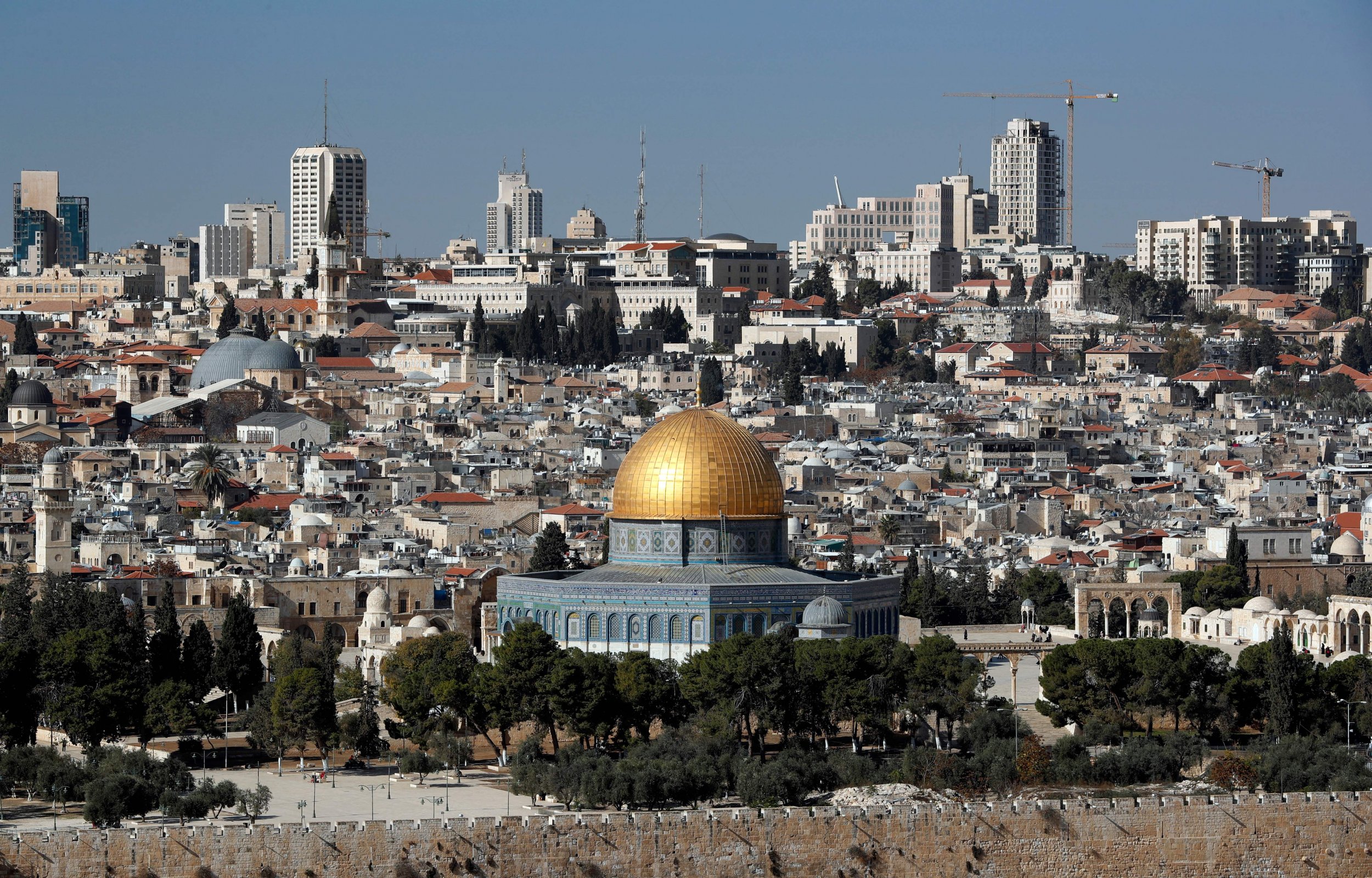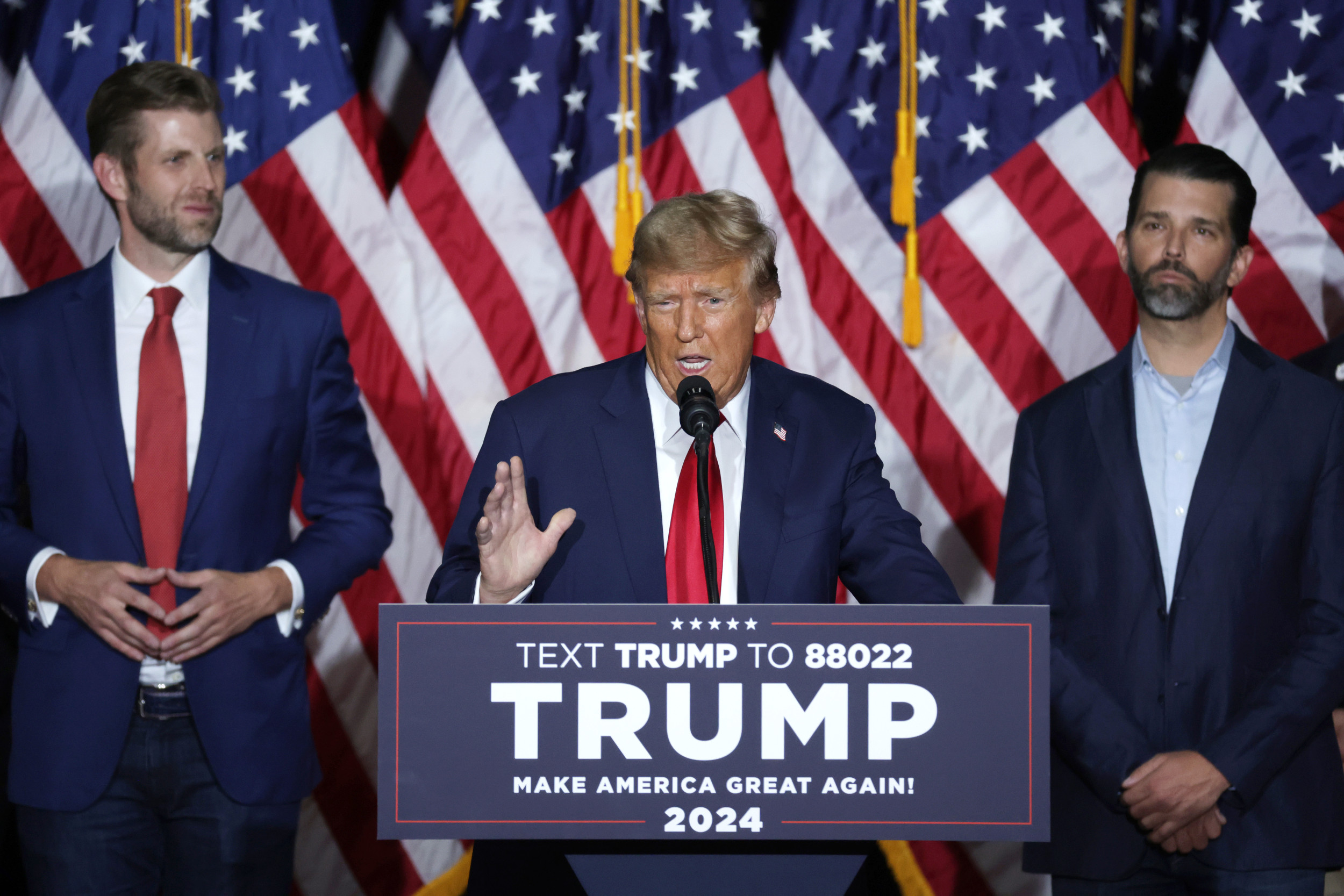
President Donald Trump's decision to move the U.S. Embassy to Jerusalem and recognize the ancient city as Israel's capital will embolden the Islamic State militant group (ISIS) and extremist Jewish settlers, according to a top Arab-Israeli lawmaker.
Trump is scheduled to make a speech Wednesday announcing his intention to set in motion the relocation of the embassy from Tel Aviv to Jerusalem. It is a decision that will upend decades of U.S. policy and one that Arab leaders have warned could inflame the Muslim world.
The ancient city is revered by Jews, Muslims and Christians, holding some of their holiest sites of worship. It has been contested since Israel occupied the city's east in the 1967 Six-Day War.
Ahmad Tibi, one of Israel's most popular Arab lawmakers and the parliament's deputy speaker, said in a phone call with Newsweek that Trump's move "will cause real damage. It will kill the so-called political process, and it will kill his efforts to bring the so-called 'ultimate deal.'"
"It will also help to empower extremists in the Middle East. Both ISIS and settlers," Tibi continued.
The region has long been blighted by Islamist extremism, with the Syrian war on Israel's border. Young, disenfranchised Muslims across the Middle East have turned to ISIS, Al-Qaeda and, in the Gaza Strip and the West Bank, Palestinian militant group Hamas.
An Israeli military occupation of the West Bank and its settlement enterprise have seen hundreds of thousands of religious Jews build outposts on territory earmarked by the Palestinians for a future state. It has given rise to Jewish extremists who attack Palestinians to assert their claim to the land.
Tibi said he had spoken with Palestinian President Mahmoud Abbas, who talked with Trump on the phone Tuesday about the president's intentions.
The move will be viewed in many quarters as effectively ending the peace process that has been dormant since 2014. Palestinians are already devoid of hope for peace, according to polling, and will likely feel there are even lower chances of progress after the U.S. recognizes the contested city as Israel's official capital. Washington can no longer act as a broker between the two parties, according to Tibi.
"If you are a broker, and you are going to deliver a deal to both sides, you do not want to kiss one side and kick the other," the lawmaker said. "This is a lack of wisdom."
But Trump had made the relocation of the diplomatic building a key campaign pledge to evangelical Christians and religious Jewish Americans who are supportive of Israel and its claim to the city. In doing so, he will become the first U.S. president to recognize the city as Israel's capital since the country was founded in 1948.
In a round of telephone diplomacy Tuesday, Trump spoke with Israeli Prime Minister Benjamin Netanyahu, Abbas and other Arab leaders to discuss the policy change with them.
"Moving the U.S. Embassy is a dangerous step that provokes the feelings of Muslims around the world," Saudi Arabia's King Salman told Trump over the phone, according to Saudi state television. The Turkish government said that the move would throw the region into "a fire with no end," and President Recep Tayyip Erdogan threatened to cut ties with Israel.
Turkish state news agency Anadolu said Erdogan would host an "extraordinary meeting" of Muslim nations on December 13 about the issue of Jerusalem.
Hamas called for a popular uprising among Palestinians and the wider Muslim world and, in tandem with other Palestinians groups, organized three "Days of Rage" from Wednesday onward in reaction to the decision.
Quarrels over the city's status go back to 1967, when Israel claimed East Jerusalem from Jordan in the Arab-Israeli War. It captured the territory from Jordan, occupying it and later annexing it, declaring Jerusalem to be the "eternal and undivided capital" of Israel.
The majority of the international community considers that the status of Jerusalem must be decided through bilateral negotiations, and does not recognize Israel's claim to the city as its official capital.
As of 2011, the population of Jerusalem was around 800,000 people, which included almost half a million Jews (62 percent), 281,000 Muslims (35 percent) and 14,000 Christians (almost 2 percent).
Uncommon Knowledge
Newsweek is committed to challenging conventional wisdom and finding connections in the search for common ground.
Newsweek is committed to challenging conventional wisdom and finding connections in the search for common ground.
About the writer
Jack is International Security and Terrorism Correspondent for Newsweek.
Email: j.moore@newsweek.com
Encrypted email: jfxm@protonmail.com
Available on Whatsapp, Signal, Wickr, Telegram, Viber.
Twitter: @JFXM
Instagram: Read more
To read how Newsweek uses AI as a newsroom tool, Click here.





